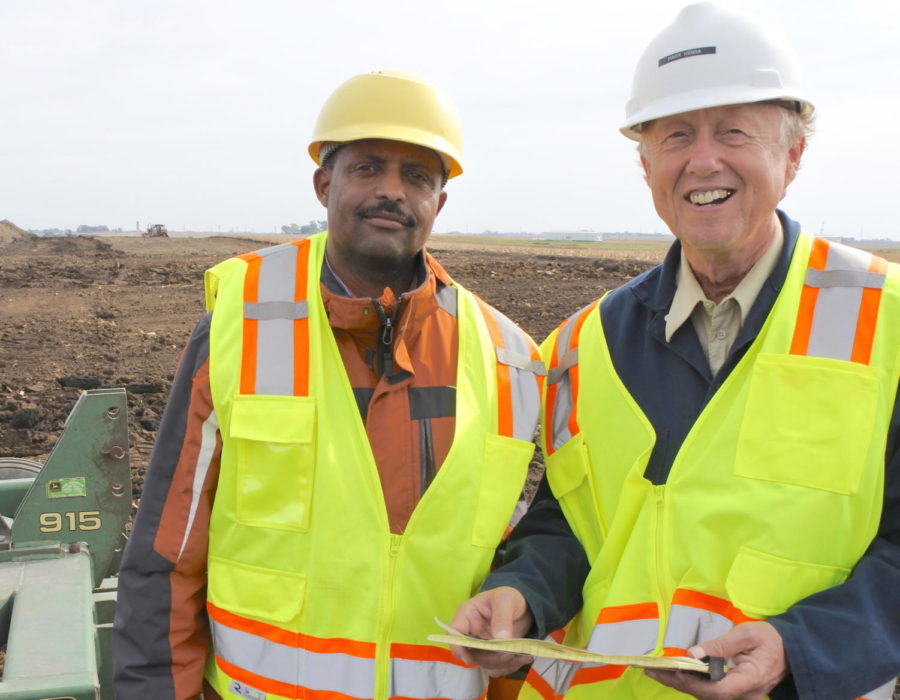Iowa State to work with Dakota Access on researching pipeline construction effects
Courtesy of Iowa State University Extension and Outreach
Mehari Tekeste, left, and Mark Hanna, right, at the experimental site.
March 7, 2017
Iowa State announced Tuesday that Dakota Access, the company overseeing the construction of the Dakota Access, or Bakken, pipeline, will help fund research by the university into the effects of construction on farmland.
Over a period of five years, researchers hope to gain a better understanding about the impact of construction utilities equipment, field traffic and deep tillage on crop yield and soil compaction, according to to a press release by the university.
“We get phone calls anytime someone goes through and uses public right-of-way to do some construction in farm fields,” Mark Hanna, a scientist in agricultural and biosystems engineering, said. “People are interested in ‘Well, they’re going to be in my field, they’re going to disturb some land and some soil. How much damage is it going to do?’”
Hanna said that this project should help answer some of those questions.
There is always some remediation effort when farmland is affected by construction, Hanna said, adding that conducting further research into the impact of development on fertile farmland is in everyone best interest.
The Dakota Access pipeline will cross about 18 acres of university-owned farmland. Researchers will be working to quantify impact of the construction on crop yield and soil compaction.
The company will be giving $600,000 to Iowa State to fund the project, Hanna said.
In the release, project leader Mehari Tekeste described the installation as “an opportunity for field-based research” to determine the impacts of the construction, especially in the long term.
The study began this past fall, with researchers collecting initial data from two acres of university-owned farmland that will be impacted by the pipeline’s construction. Research farm staff will continue normal practices during the growing season, with a corn-soybean rotation.
Hanna says that the team will continue to follow up on the area to determine the affects of the construction not only on the soil, but on crops as well.
In Iowa, the Dakota Access pipeline will cross about 5,740 acres of farmland, according to Dakota Access. The total cost of the pipeline is approximately $3.8 billion.
















